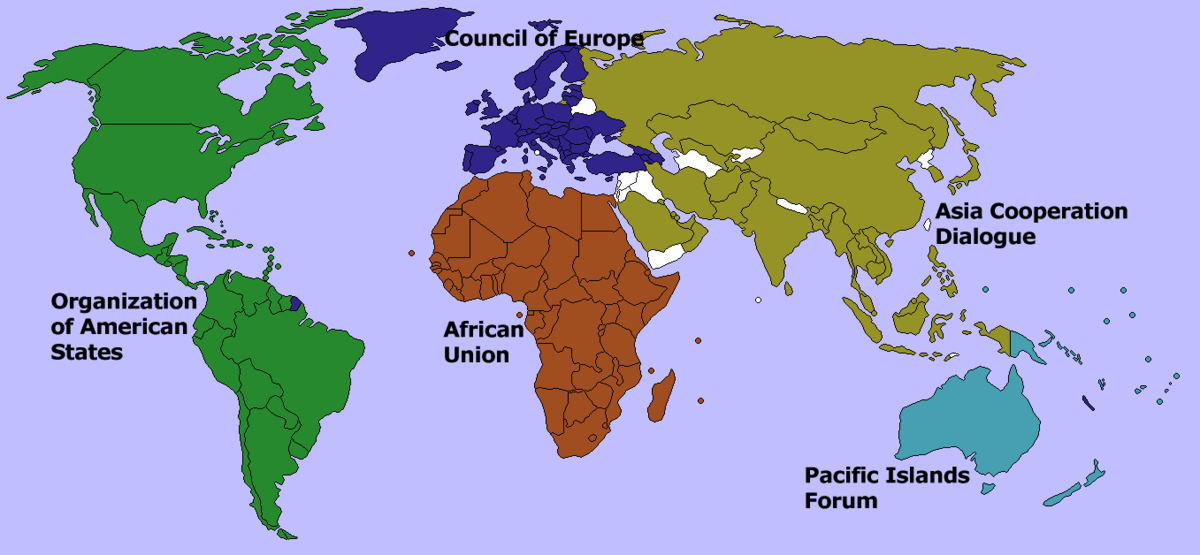The AQ blog recently published an excellent article analyzing the effectiveness and utility of broad, multinational coalitions in the Americas:
This is not to call for unilateralism or a rejection of international norms at the expense of alliances and partners. What it does point to is a more limited, pragmatic agenda: engaging on specific, discrete issues with countries—energy, trade, elections, human rights, climate change, multilateral negotiations, nuclear non-proliferation—when it is in the specific national interests of regional neighbors. Wishing for more is an exercise in futility and impotence.
It is a great point. Regional integration blocs (regardless of stated purpose) – UNASUR, PARLACEN, ALBA, OAS, CAN, etc. – have goals and expectations that often exceed what is practical or feasible for all partners involved. As a result, progress often fails to extend beyond verbal commitments and niceities at best, and ire and potential political conflict at worst. Panama’s recent announcement that they would leave PARLACEN in November 2010 is evidence of some of the mounting frustrations among member states about lots of talk, but little action within large regional blocs. True to form of using words, not action, the bloc expressed their discontent, but little else has happened.
The case for smaller, more nimble alliances to effecitvely tackle problems on a case-by-case basis has two principal advantages.
1) Tackling a specific issue, not a broad one. Let’s take a broad issue – energy. Back at the most recent UNASUR summit in August 2009, the bloc agreed that the UNASUR Energy Council should plan an integrated energy project for the region. This is an admirable goal, but one that fails to address a specific problem (such as the energy crisis in Ecuador) that requires urgent action. Thus, what actually may address the problem – Venezuela’s donation of energy-saving-bulbs to Ecuador – is not part of the regional strategy because each problem is unique and cannot be solved by a blanket strategy.
We are not the first to argue this. Back in January, Patrick Corcoran of Gancho Blog wrote a piece for World Politics Review arguing against the siloing of regional issues to be resolved by large regional blocs:
The problem doesn’t lie so much in [the] priorities, but rather the goal of establishing comprehensive Latin American priorities in and of itself. Whatever the objectives are, a list of four or five of them inevitably shortchanges large swaths of the region.
2) The ability to act quickly. Any crisis or situation demanding immediate action may require empowering one or two actors to act quickly, rather than waiting for the approval of many, lesser-involved actors to have their say. Allowing a political crisis to fester while nations agree to disagree and deliberate results in inaction and the persistence of the crisis.
The Value of Blocs
Yet while the blocs may not be the main problem solvers, they still serve an important function: They are representative of the commitment to multi-lateral cooperation and understanding, which is important to regional unity and may aid in diplomatic progress down the road. For example, a bi-lateral understanding between Brazilian and Paraguayan security forces may be the most effective way of immediately combatting drugs and weapons smuggling along the Paraguay-Brazil border. However, each nation’s involvement in UNASUR and the the diplomatic progress possible from the commitment to this top-level alliance may pave the road for micro-level partnerships when it comes to execution of a plan.
Integration requires approval and commitment from the highest levels of the state. Rather than try to clump the issues together and solve these issues themselves, the regional blocs can foster the type of alliances necessary to address each problem on an individual scale. Perhaps it is time not to re-evaluate the existence of the blocs, but their mission and the reality of the goals they can accomplish.

Reply